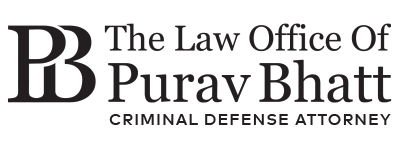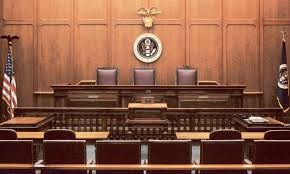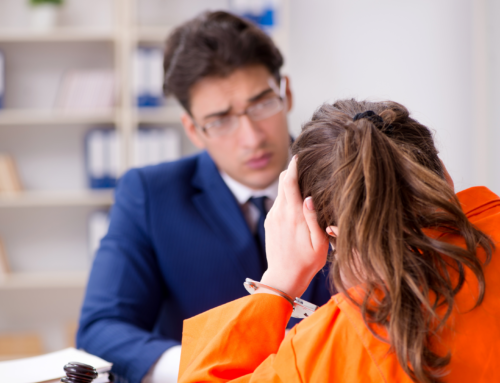Federal Judge Virginia Kendall publishes opinion based on Healthcare fraud Case I argued before the Northern District of Illinois Federal Court.
See the opinion below….
U.S. v. FERRELL
NO. 11 CR 595.
UNITED STATES OF AMERICA, Plaintiff,
v.
KEENAN FERRELL, Defendant.
United States District Court, N.D. Illinois, Eastern Division.
May 14, 2014.
Keenan R. Ferrell, Defendant, represented by Joshua B. Adams, Law Offices of Joshua B. Adams, PC & Purav Bhatt, Law Offices of Purav Bhatt.
Bryce Woods, Defendant, represented by <att_name>Gerardo Solon Gutierrez.
USA, Plaintiff, represented by Paul H. Tzur, United States Attorney’s Office & Andrew R DeVooght, United States Attorney’s Office.
VIRGINIA M. KENDALL, District Judge.
A jury found Keenan Ferrell guilty of six counts of health care fraud. (Dkt. No. 169.) The nine-count indictment alleged that Ferrell and Bryce Woods submitted false claims for psychotherapy services purportedly rendered by Ferrell. (Dkt. No. 1.) The Government dismissed counts five, six, and seven prior to trial. (Dkt. No. 154.) The jury returned a verdict of guilty as to the remaining six counts against Ferrell. Ferrell now moves for judgment of acquittal under Fed. R. Crim. P. 29 based on an evidentiary ruling that excluded a voicemail Ferrell sought to introduce into evidence. Ferrell also moves for a new trial under Fed. R. Crim. P. 33 based on inaccurate evidence presented to the jury. According to Ferrell, this evidence denied him a fair trial. For the reasons stated herein, this Court denies Ferrell’s motions.
I. THE RECORD CONTAINED SUFFICIENT EVIDENCE TO SUPPORT OF THE JURY’S VERDICT
A motion for judgment of acquittal challenges the sufficiency of the evidence against a defendant. Fed. R. Crim. P. 29. “A defendant who makes an insufficient evidence claim `faces a nearly insurmountable hurdle.'” United States v. Tucker, 737 F.3d 1090, 1092 (7th Cir. 2013) (citing United States v. Morris, 576 F.3d 661, 666 (7th Cir. 2009) (quoting United States v. Pulido, 69 F.3d 192, 205 (7th Cir. 1995))). When considering a motion for judgment of acquittal, a court must view all facts in the light most favorable to the government and ask “whether the record contained sufficient evidence from which the jury could reasonably find the defendant guilty beyond a reasonable doubt.” United States v. Swan, 486 F.3d 260, 266 (7th Cir. 2007).
To prove that Ferrell committed health care fraud, the Government had to show that there was a scheme to defraud a health care benefit program, that Ferrell knowingly and willfully executed that scheme with respect to each count, and that he acted with intent to defraud. See 18 U.S.C. § 1347(a); see also United States v. Chhibber, 741 F.3d 852, 858-59 (7th Cir. 2014) (discussing 18 U.S.C. § 1347(a)) and United States v. Natale, 719 F.3d 719, 739-41 (explaining that health care fraud statutes require an intent to deceive). Here, Ferrell does not argue that the evidence was insufficient as to any of these elements. Even if he tried to do so, that argument would fail. The Government presented evidence that Ferrell certified that he would learn and abide by Medicare’s rules when he applied for Medicare billing privileges. (See, e.g.,Trial Tr. at 156:4-17.) The Government also presented evidence that Ferrell made money by billing Medicare for services provided to nursing home patients by his students and others. (See, e.g., id. at 760:9-19.) Finally, the Government presented evidence that Ferrell billed Medicare for services provided to deceased patients. (See, e.g., id. at 809:18-22.) The evidence presented, viewed in the light most favorable to the Government, was sufficient to support the jury’s verdict.
Instead of identifying any evidentiary shortcomings, Ferrell challenged this Court’s prior evidentiary ruling concerning a voicemail from William Woods. Even if this Court were to reconsider its evidentiary ruling, which is essentially what Ferrell seeks, Ferrell does not identify any newly discovered evidence or manifest errors of law or fact. Instead, he simply rehashes arguments made in his motion in limine to admit the voice message. (Compare Dkt. No. 177 at 3-5 with Dkt. No. 107.) This Court previously addressed Ferrell’s arguments when it granted the Government’s motion to exclude the voicemail and denied Ferrell’s motion to admit it. (Dkt. No. 151 at 10-13.) In short, there is no dispute as to whether the voicemail is hearsay and the voicemail is not subject to the statement against interest exception because it did not contain statements against the declarant’s interest nor did it have corroborating circumstances to support its trustworthiness. (Id.)
Because Ferrell has not met his burden with respect to his challenge to the sufficiency of the evidence, this Court denies his motion for judgment of acquittal.
II. THE INTERESTS OF JUSTICE DO NOT REQUIRE A NEW TRIAL BECAUSE THERE WAS NO PREJUDICIAL EFFECT ON THE JURY
A court may vacate a judgment and grant a new trial where the interests of justice so require. Fed. R. Crim. P. 33(a). “A defendant is entitled to a new trial if there is a reasonable possibility that a trial error had a prejudicial effect upon the jury’s verdict.” United States v. VanEvl, 468 F.3d 428, 436 (7th Cir. 2006). Here, Ferrell claims that an error concerning the death of at least one and as many as five patients prejudiced the jury. The Government presented evidence that Ferrell billed Medicare for services provided to seventeen purportedly deceased patients. During trial, the Government learned from counsel for Ferrell’s co-defendant that one of the seventeen purportedly deceased patients was still alive. The Government then reduced the number of deceased patients that Ferrell allegedly billed Medicare for to twelve, which matched the number of death certificates produced during discovery and admitted into evidence during trial. The Government recalled the witness who had previously testified about the deceased patients and she explained the error. (Trial Tr. 921:20-923:15.)
Ferrell’s counsel cross-examined the witness on the deceased patients. And Ferrell’s counsel referred to the Government’s error regarding the number of deceased patients throughout his closing argument. Such opportunities, to cross-examine and to argue, are key to a fair trial. See Gen. Elec. Capital Corp. v. Lease Resolution Corp., 128 F.3d 1074, 1083 (7th Cir. 1997) (“The key to a fair trial is opportunity to use the appropriate weapons (rebuttal evidence, cross-examination, and argument) to meet adverse materials that come to the tribunal’s attention.” (citation and quotation omitted).) Because the Government’s witness admitted her error, corrected it, and was subject to cross-examination on it, there is no reasonable possibility that the error concerning the number of deceased patients improperly influenced the jury. Closing arguments ensured as much, as Ferrell’s counsel told the jury about the Government’s error:
Mistakes happened in this case. You heard about it yesterday. The government made a mistake in the evidence submitted to you. On Friday they were convinced about this chart. They were convinced Dr. Ferrell billed someone who was dead since 1992, 125 times. What did we find out Monday. They were wrong. And they made a mistake.And Ladies and Gentlemen, if they’re wrong about that, then they’re wrong about everything else. You have to question every piece of evidence the government has shown you.(Trial Tr. 1025:3-13.) Given the testimony concerning the corrected number of deceased patients, the revised exhibits admitted into evidence, and the efforts by Ferrell’s counsel to capitalize on the Government’s error, this Court finds that Ferrell received a fair trial.
More importantly, the jury heard evidence that Ferrell billed Medicare for services provided to twelve deceased patients whose deaths were confirmed by death certificates. This evidence mitigates the Government’s error concerning the other five patients. This is not a case where the only evidence the Government presented concerning Ferrell billing Medicare for services provided to deceased patients was inaccurate. Rather, only a portion of the evidence presented by the Government was in error. The twelve patients whose deaths were confirmed by death certificates mitigated any prejudicial effect that the Government’s error may have caused. For this reason, and because the jury knew of the Government’s error, had the opportunity to assess the credibility of a witness concerning that error, and heard argument concerning that error, this Court denies Ferrell’s motion for a new trial.
CONCLUSION
For the reasons stated herein, this Court denies Ferrell’s motion for judgment of acquittal and his motion for a new trial.
https://leagle.com/decision/In%20FDCO%2020140515A28.xml/U.S.%20v.%20Ferrell







